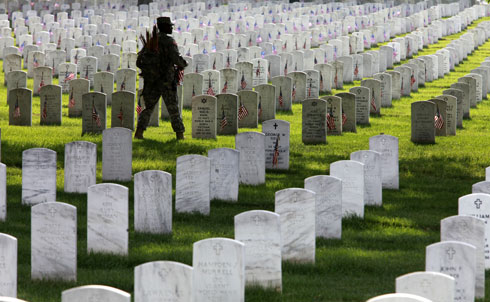
Since its founding in 1865, The Nation has reported from the front-lines of every major and minor (if any war can be thus termed) military conflict in which the US has been enmeshed. The great physical and mental tolls war takes on both soldiers and civilians has been a recurrent theme, as has the senselessness of most armed struggle. From the aftermath of the Civil War, to the absurd brutality of the Great War, to the anti-fascist fight in Spain in the late 1930s, to the unprecedented carnage of World War II, to the divisive tragedy in Vietnam, to the current conflicts in Iraq and Afghanistan, The Nation has decried the costs of America’s military ventures paid by the men and women who carry them out. To mark this Memorial Day, we have assembled a small collection of archival articles and images of war and its victims.
AP Images
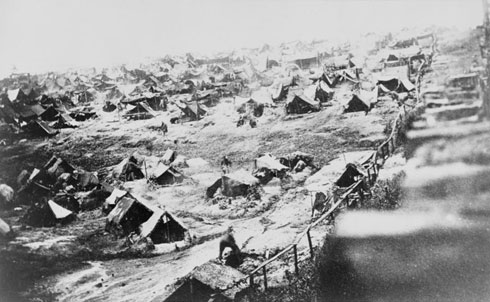
As Reconstruction began in the post-war South, the hidden atrocities of the war between the states started to come to light. In one 1866 piece, "Welcome to Andersonville," the editors of The Nation describe the brutal conditions at that notorious Confederate prisoner of war camp, where men lay "partially naked, dirty and lousy in the sand, wasting under gangrene, putrid from fever-sores, and literally dying from starvation."
Library of Congress
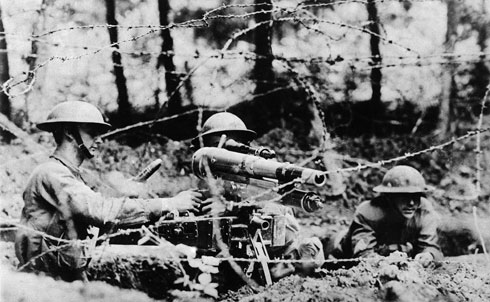
With American soldiers returning from the bloody trenches and fields of World War I Europe, The Nation‘s James Rorty asks whether the ravages of the front have laid waste to the men’s futures: "War kills the spirit as well as the flesh of youth. Are they spent, or have they still to give? To these men as they march past, shall we say ‘Hail’—or ‘Farewell’?"
AP Images
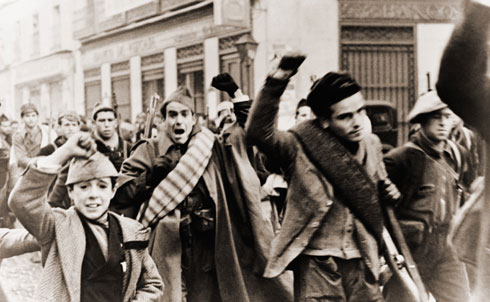
In the last years of the 1930s, the world’s attention turned to Spain, where the great ideological battles of the twentieth century were fought with bullets, bombs and bluster. The Civil War pitted Socialists, Anarchists and defenders of the Republic against Monarchists and Fascists in a struggle that drew in forces from all over the Western world. In 1937, The Nation published a letter from a twenty-year-old member of the Abraham Lincoln Brigade, the American volunteer battalion that sided with the Republican cause "to fight against the fascists and landlords and the foreigners who send the bombing planes" over Spanish houses.
Everett Collection
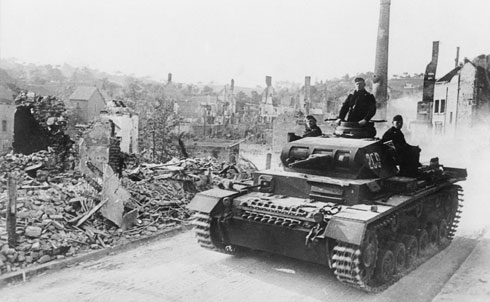
As World War II breaks out in Europe, The Nation initially urges the US to stay out of the war. The magazine, in 1939, argues that the efforts of the American people could be better spent "advocating disarmament" and "exposing the needless waste of the terrific military expenditures we are now making, to say nothing of the steady militarization of the country." By the next year, the magazine had changed its tune, advocating military support of Great Britain and a strong US buildup in defense against the Axis powers.
AP Images
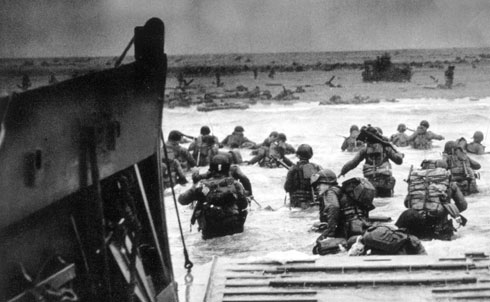
In the aftermath of D-Day and the establishment of a beachhead on the coast of France, the end is in sight for Germany. The Nation reports that Hitler’s "old nightmare has become grim reality" as his forces are encircled and forced to fight on five fronts. "Where…shall he throw his reserves?" The Nation asks, "how far can he strip his home garrisons when Germany harbors ten million foreign slaves waiting a chance to break their bonds?"
Everett Collection
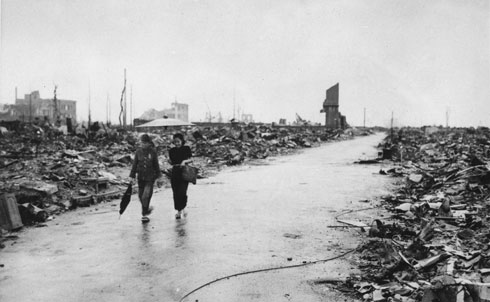
After the detonation of "Little Boy" over Hiroshima in August 1945, The Nation‘s editors reflected on Japan’s surrender and how Allied occupation will shape the country. The Nation‘s editors argue that “what the Japanese war lords may say in the first hours of defeat is not nearly as important as what kind of Japan we shall have one year or ten years from now. That will be determined largely by the wisdom and firmness of our occupation policies.”
AP Photo/U.S. Air Force
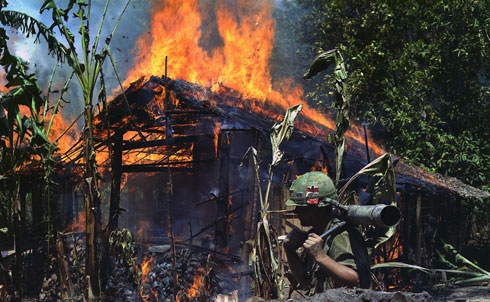
As America’s involvement in Vietnam escalated, The Nation began recording the futility of the conflict. Embedded with American troops in 1967, William Eastlake witnessed a napalm strike against suspected Viet Cong: "Three Phantom jets flashed over and three silver canisters flashed out, three fire bombs flashed up, and the day was all afire."
Everett Collection
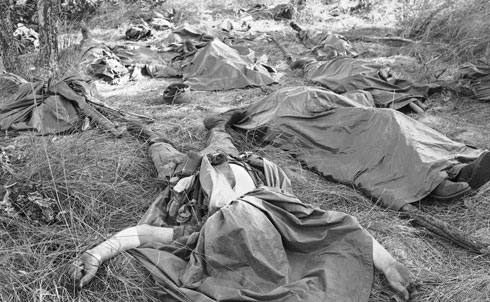
In his 1971 article on a deceptive Defense Department account of the Vietnam War, William Eastlake describes the ways in which the government’s unrelenting public relations campaign has done little to quell distaste for the war on the home front. Fueled by corruption and incompetence, the war was an exercise in unlearning the lessons of the past. "The American military hasn’t defended anything American for a generation now, but it has killed our youth in foreign wars, defending tinhorn dictators against the wrath of their own people," Eastlake writes. "We shall begin winning wars when we stop fighting them."
AP Photo/Peter Arnett
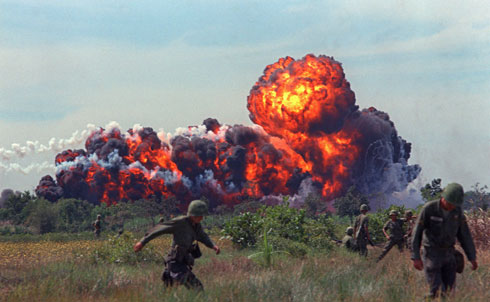
In an April 12, 1975 editorial, The Nation describes the last exodus of US troops from Vietnam and the unceremonious end of that shameful war. Americans no longer had the will to fight and die in a far-off country, and the "disastrous rout of panic-stricken troops in South Vietnam… suddenly and dramatically illuminated the folly of American intervention in that unhappy land." The bitter lesson of the debacle, according to The Nation, is that “we betrayed our own national ideals when we intervened.”
AP Images
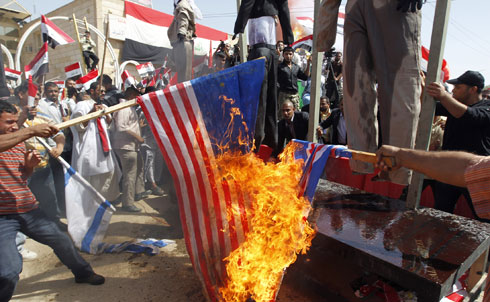
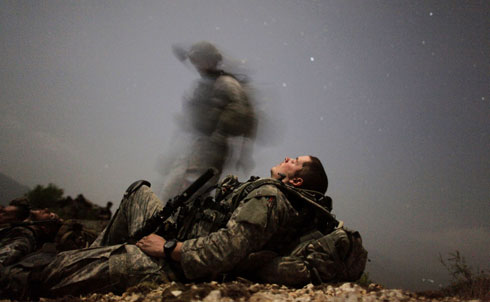
As US soldiers fight and die in Iraq and Afghanistan, and as the public’s support of those conflicts steadily wanes, The Nation continues to stand firm against America’s involvement in wasteful, immoral wars.
Visit The Nation‘s World section for more.
Reuters Pictures


